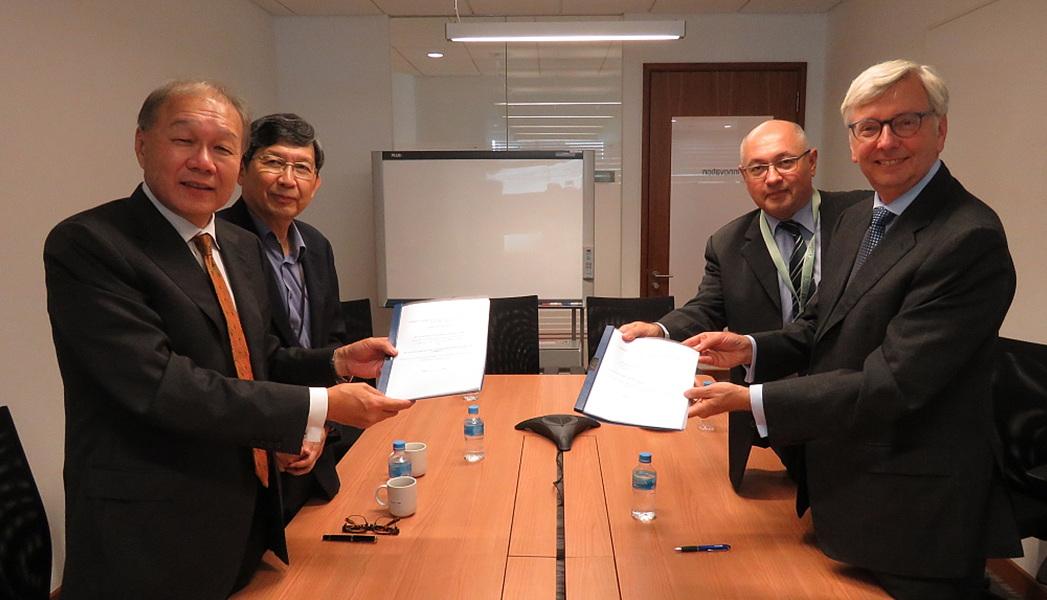
Cambridge University’s Singapore research centre, the Cambridge Centre for Advanced Research and Education in Singapore Ltd (Cambridge CARES), has been awarded funding for another five years of carbon reduction research and begins the next phase of their programme today (1 November). The funding, from the National Research Foundation Singapore (NRF), will boost the centre's current work on reducing greenhouse gas emissions from chemical industry in Singapore and elsewhere.
The programme promotes the Singapore government’s commitment to reduce carbon emissions by 36% from 2005 levels by 2030, made in 2016 as part of the Paris Agreement on climate change. Cambridge CARES will perform fundamental research on the use of renewables, nanomaterials, low carbon fuels and energy efficiency to optimise the use of resources and waste products and reduce Singapore’s carbon footprint. The programme is internationally collaborative and outward-looking, with the potential to apply this research and its related technologies globally.
Cambridge CARES is the University of Cambridge’s only overseas presence. It opened in 2013 under the NRF’s Campus for Research Excellence and Technological Enterprise (CREATE) programme. Cambridge CARES brings together researchers from Cambridge University, National University of Singapore and Nanyang Technological University. This recent funding is for the continuation and expansion of Cambridge CARES' first and largest research programme, Cambridge Centre for Carbon Reduction in Chemical Technology, which aims to assess and reduce the carbon footprint of the integrated petrochemical plants on Jurong Island in Singapore. The expanded programme will commence in November 2018.
Three new projects in the renewed research programme include cleaner and more efficient heat usage, the integration of technologies into industrial practice and the J-Park Simulator, a platform for the testing and modelling of carbon reduction technologies using a virtual representation of the world. The programme fully aligns with Singapore’s National Climate Change Strategy, which emphasises the need to optimise the use of the available environmental and energy resources, while achieving synergies with environmental sustainability, economic competitiveness and energy security.
Cambridge CARES Director Professor Markus Kraft said, "I am very pleased that our funding has been renewed. This will allow us to build on the success of our first five years of research and make many more exciting discoveries."
The University of Cambridge's Vice-Chancellor Professor Stephen Toope said, "We are delighted that the National Research Foundation has agreed to fund the next phase of this important project, the Cambridge Centre for Carbon Reduction in Chemical Technology. The Government of Singapore’s far-sighted support enables world-leading researchers, from Singapore and the UK and elsewhere, to work collaboratively in this crucial field. This funding will continue the work of scientists and engineers in reducing the carbon footprint of industrial developments, and will engage with specialists in manufacturing and business, so that academic research is integrated with industry collaboration. The work that is done here will benefit not only Singapore, but the world."
About National Research Foundation Singapore
The National Research Foundation Singapore (NRF) is a department within the Prime Minister's Office. The NRF sets the national direction for research, innovation and enterprise (RIE) in Singapore. It seeks to invest in science, technology and engineering, build up the technological capacity of our companies, encourage innovation by industry to exploit new opportunities that drive economic growth, and facilitate public-private partnerships to address national challenges.

